第54章
A very different spectacle is exhibited among a people accustomed to transact their own business. In France, a large part of the people, having been engaged in military service, many of whom have held at least the rank of non commissioned officers, there are in every popular insurrection several persons competent to take the lead, and improvise some tolerable plan of action. What the French are in military affairs, the Americans are in every kind of civil business;let them be left without a government, every body of Americans is able to improvise one, and to carry on that or any other public business with a sufficient amount of intelligence, order, and decision. This is what every free people ought to be: and a people capable of this is certain to be free; it will never let itself be enslaved by any man or body of men because these are able to seize and pull the reins of the central administration. No bureaucracy can hope to make such a people as this do or undergo anything that they do not like. But where everything is done through the bureaucracy, nothing to which the bureaucracy is really adverse can be done at all. The constitution of such countries is an organisation of the experience and practical ability of the nation into a disciplined body for the purpose of governing the rest; and the more perfect that organisation is in itself, the more successful in drawing to itself and educating for itself the persons of greatest capacity from all ranks of the community, the more complete is the bondage of all, the members of the bureaucracy included. For the governors are as much the slaves of their organisation and discipline as the governed are of the governors. A Chinese mandarin is as much the tool and creature of a despotism as the humblest cultivator. An individual Jesuit is to the utmost degree of abasement the slave of his order, though the order itself exists for the collective power and importance of its members.
It is not, also, to be forgotten, that the absorption of all the principal ability of the country into the governing body is fatal, sooner or later, to the mental activity and progressiveness of the body itself. Banded together as they are- working a system which, like all systems, necessarily proceeds in a great measure by fixed rules- the official body are under the constant temptation of sinking into indolent routine, or, if they now and then desert that mill-horse round, of rushing into some half-examined crudity which has struck the fancy of some leading member of the corps; and the sole check to these closely allied, though seemingly opposite, tendencies, the only stimulus which can keep the ability of the body itself up to a high standard, is liability to the watchful criticism of equal ability outside the body. It is indispensable, therefore, that the means should exist, independently of the government, of forming such ability, and furnishing it with the opportunities and experience necessary for a correct judgment of great practical affairs. If we would possess permanently a skilful and efficient body of functionaries- above all, a body able to originate and willing to adopt improvements; if we would not have our bureaucracy degenerate into a pedantocracy, this body must not engross all the occupations which form and cultivate the faculties required for the government of mankind.
To determine the point at which evils, so formidable to human freedom and advancement, begin, or rather at which they begin to predominate over the benefits attending the collective application of the force of society, under its recognised chiefs, for the removal of the obstacles which stand in the way of its well-being;to secure as much of the advantages of centralised power and intelligence as can be had without turning into governmental channels too great a proportion of the general activity- is one of the most difficult and complicated questions in the art of government.